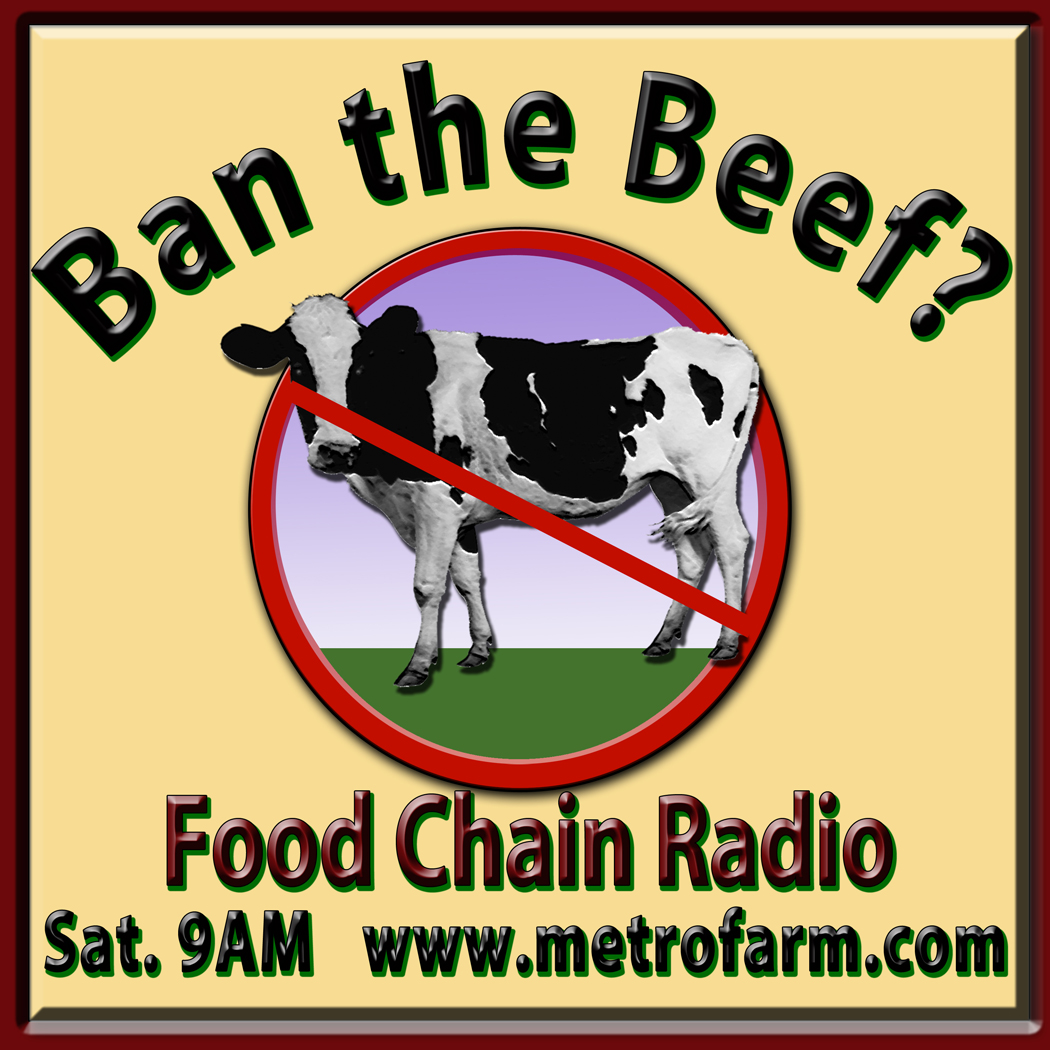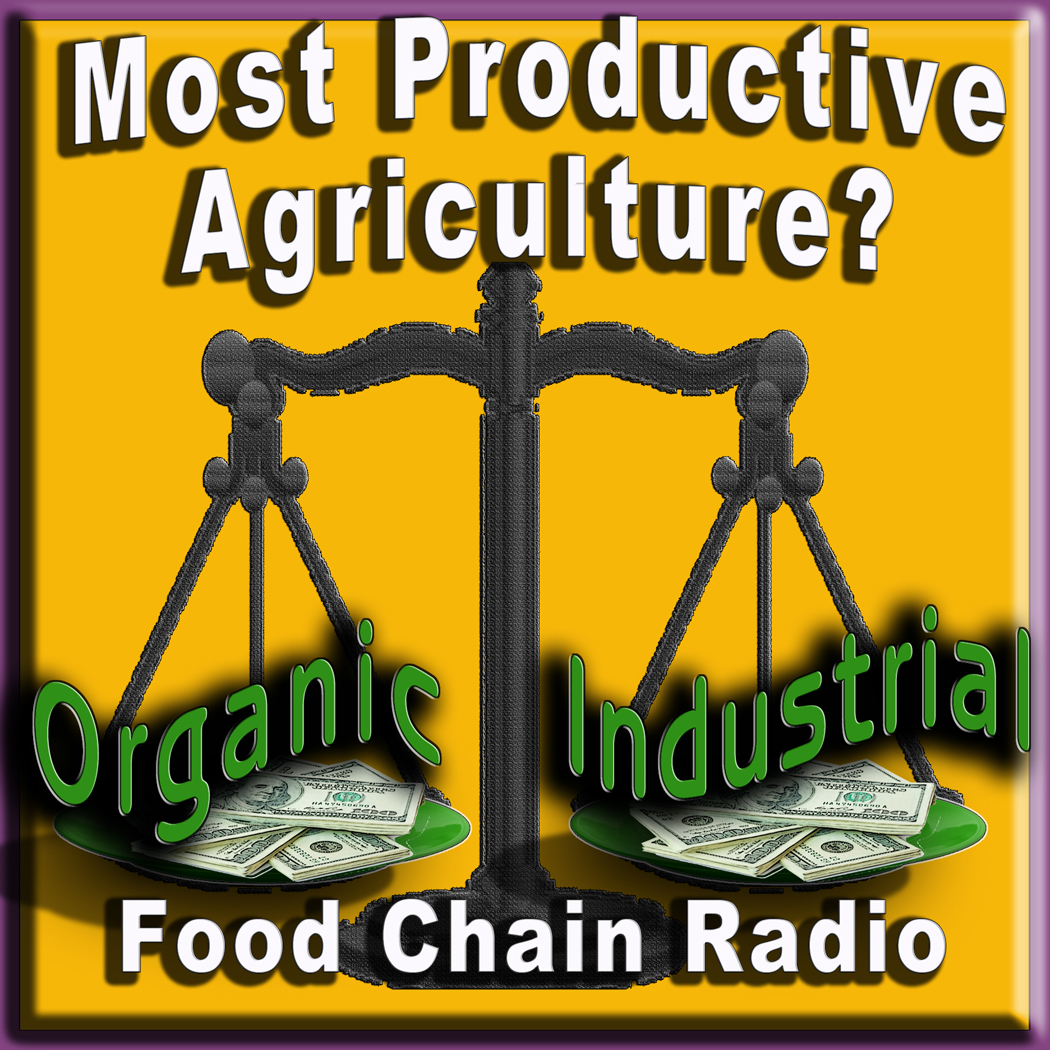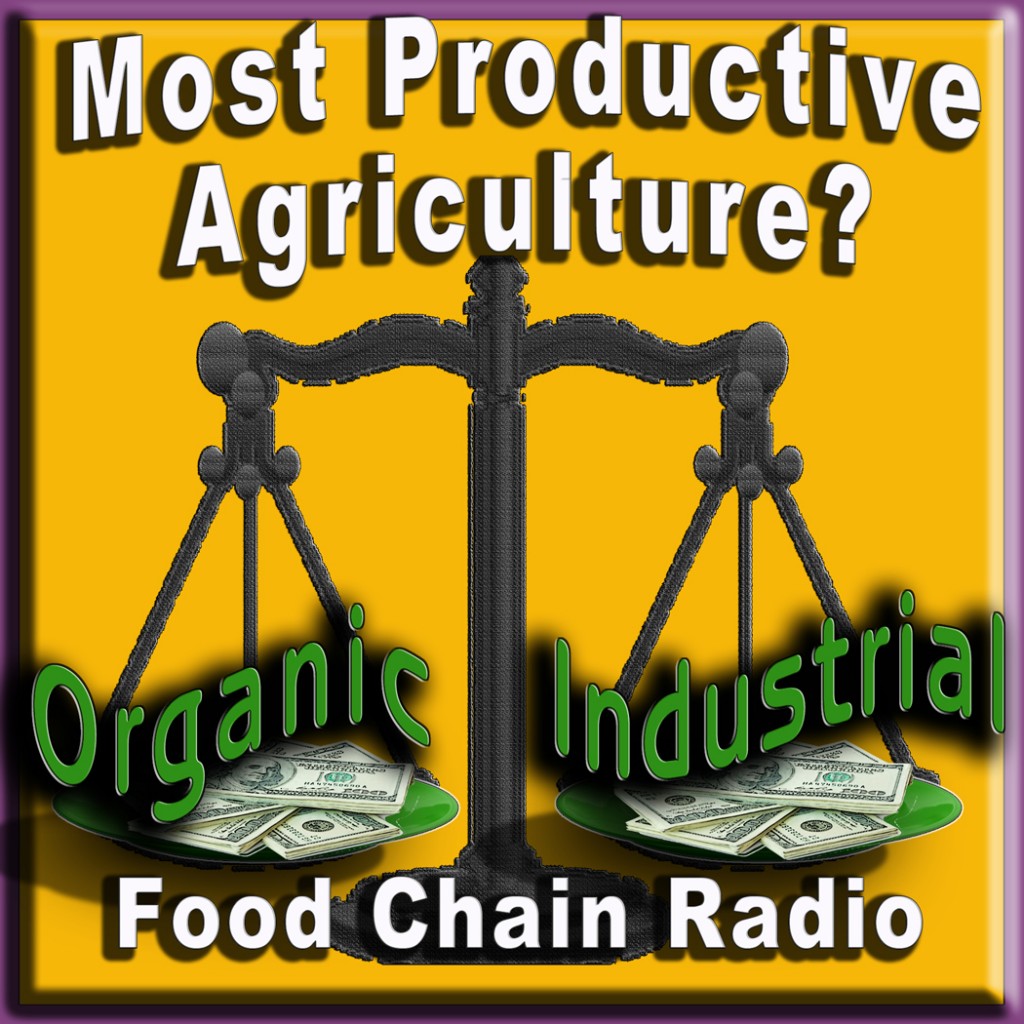
Eating Out
December 18, 2014
Grass Fed Beef
January 8, 2015Michael Olson, Author & Urban Farming Agriculturalist
Industrial or Organic and Regenerative Farming
Which agriculture is most productive: Industrial or Organic?
Guests: UC Berkeley Conservation Biologist Lauren Ponisio
This just in: USDA has approved Monsanto Corporation’s “Xtend” genetically-modified soybeans for commercial production.
Xtend demonstrates how the cutting-edge technologies of industrial agriculture address the problems that come with feeding ever more people with ever fewer resources. The problems Xtend address are the various broad-leaf weeds that steal sunshine, moisture and nutrients from growing crops.
Fighting weeds, and other pests, has always cost farmers a significant amount of resources. For millennium, the resources consisted primarily of a hoe and the time it cost to wield that hoe. Then, in 1970, Monsanto scientist John Franz discovered glyphosate, a chemical that kills broad-leaf weeds and grasses when applied to their surface. Monsanto brought its patented glyphosate to market under the trade name “Roundup.”
In recent times, Monsanto re-engineered the genes of some commercial crops to make them tolerate Roundup. This “Roundup-Ready” technology made it possible to apply the weed-killing glyphosate herbicide over broad areas of farmland with machines, thereby saving farmers a great deal of time and money. Consequently, one farmer can now grow a thousand acres of crops with no weeds!
But weeds also have the ability to adapt, and have adapted to Monsanto’s Roundup-Ready technology by developing “super weeds” that also tolerate glyphosate, which takes us to Monsanto’s next leap in technology: Xtend.
Xtend crops have been re-engineered to tolerate both glyphosate and dicamba, which is Monsanto’s version of the 2,4-D defoliant that became widely known in the 1970s as “Agent Orange.” With the USDA’s approval of Xtend, farmers will now be allowed to spray crops with two herbicides instead one. (Similar technologies exist for controlling insect pests, where some crops have been re-engineered to contain 3 varieties of pesticides. When an insect bites into a plant, it will consume three poisons, one of which will likely to do the insect in!)
The technologies of industrial agriculture make it possible for few farmers to feed many people, but at the cost of an environment saturated in herbicides and infused with pesticides.
Some say the technologies of industrial agriculture are necessary to feed the future, that without them billions will starve. But others point to a study that says organic agriculture might be made to produce as much food without the environmental costs. leads us to ask…
Which agriculture is most productive: industrial or organic?




